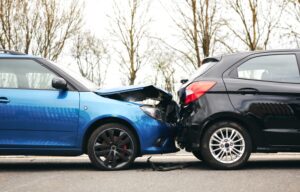Car accidents occur frequently throughout Virginia and across the country. They affect countless individuals and families each year. Following a collision someone else caused, you may find yourself grappling with medical bills, vehicle repairs, and other unexpected expenses. You need to understand your legal options to seek compensation. One pressing question you may have is, “Can I sue after a car accident?”
Read on to learn more about the complexities of pursuing compensation from the at-fault party, especially through litigation. For personalized advice, reach out to a abogado de accidentes automovilísticos in your area for a free consultation.
When you can sue after a car accident
Determining whether you can file a lawsuit after a car accident involves several factors. Your best choice is to work with a car accident attorney who can help you assess fault, explain the steps to initiate legal action, and guide you through the process. A lawyer can also advise you on any time limitations for filing a lawsuit and advocate for you to improve your chances of obtaining successful results.
Establishing fault and negligence
To pursue a lawsuit, your attorney must demonstrate that another party’s negligence caused the accident. Negligence occurs when a driver fails to exercise reasonable care, leading to harm. Evidence such as police reports, witness statements, and traffic camera footage can help establish fault.
Types of accidents that typically warrant lawsuits
Certain scenarios often lead to lawsuits, including:
- Colisiones traseras: When a driver hits the back of another vehicle, they are often deemed at fault.
- Colisiones frontales: These severe accidents can result in significant injuries, often leading to legal action.
- Accidentes por conducir en estado de ebriedad: Operating a vehicle under the influence is illegal and can be grounds for a lawsuit.
- Distracted driving accidents: Texting or other distractions that cause accidents may warrant legal claims.
Virtually any kind of car accident can warrant legal action. Speak with a lawyer about your case to determine your best course of action.
Time limitations (statute of limitations)
Each state imposes a statute of limitations, defining the timeframe within which you can file a lawsuit. This period varies by state but typically ranges from one to six years. For instance, Virginia allows you two years from the date of the crash to Presentar una demanda por lesiones personales in court. Failing to file within this window can forfeit your right to seek compensation.
Cases involving government entities may have far shorter deadlines. Also, certain exceptions may apply to your case that extend the time you have to file. Contact an attorney promptly to ensure you don’t miss important deadlines.
No-fault vs. at-fault states
In no-fault states, your own insurance covers medical expenses and lost wages, regardless of who caused the accident. Suing the at-fault driver is limited to cases involving severe injuries or exceeding certain monetary thresholds.
In at-fault states, like Virginia, the driver responsible for the accident is liable for damages. This allows you to pursue a claim against them directly.
Types of damages you can sue for
If you decide to file a lawsuit, you may seek various types of damages to compensate for losses incurred due to the accident.
Gastos médicos (actuales y futuros)
Medical treatment after a car accident can be expensive, especially if injuries require long-term care. Compensation for medical expenses may include:
- Emergency treatment: Ambulance rides, emergency room visits, and urgent care services.
- Estancias hospitalarias: Costs for inpatient care, surgeries, and specialist consultations.
- Diagnostic tests: X-rays, MRIs, CT scans, and other imaging tests used to diagnose injuries.
- Rehabilitation and therapy: Physical therapy, occupational therapy, and other forms of rehabilitation.
- Ongoing and future medical care: Compensation for treatments required after the lawsuit is settled, such as follow-up surgeries or long-term pain management.
- Medical equipment and home modifications: Costs for wheelchairs, prosthetics, or modifications to a home for accessibility.
To prove medical expenses, documentation such as hospital bills, doctor’s notes, and treatment plans can demonstrate the costs incurred and future care needs.
Pérdida de salarios y pérdida de capacidad de ingresos
Car accident injuries may prevent you from working temporarily or permanently. If the accident affects your ability to earn income, you may recover compensation for:
- Salarios perdidos: Income you missed while recovering from your injuries.
- Lost earning capacity: If injuries prevent you from returning to your previous job or working at the same level, compensation may cover the difference in your earning potential.
- Loss of career advancement: Missed promotions, raises, or career opportunities due to accident-related limitations.
Employment records, tax returns, and expert testimony from vocational specialists can help establish financial losses related to your employment.
Daño a la propiedad
A lawsuit may also include compensation for damage to your vehicle and personal belongings affected by the crash. This may cover:
- Vehicle repairs: The cost to fix or restore your damaged car.
- Vehicle replacement: If your car is totaled, you may recover the market value of your vehicle.
- Personal property: Damage to personal belongings inside the vehicle, such as phones, laptops, or clothing.
Repair estimates, receipts, and photographs of the damage can support a property damage claim.
Dolor y sufrimiento
Not all damages are financial. Physical injuries can lead to long-term pain and diminished quality of life. Compensation for pain and suffering includes:
- Chronic pain: Lingering pain from injuries that affect daily activities.
- Pérdida del disfrute de la vida.: Inability to participate in hobbies or activities you once enjoyed.
- Incapacidad permanente o desfiguración: Scars, amputations, or other permanent injuries that alter your life.
Unlike economic damages, pain and suffering damages are subjective and may require testimony from medical experts, therapists, or personal statements detailing how the accident impacted your life.
Estrés emocional
Car accidents can cause significant psychological trauma. Emotional distress damages compensate for:
- Anxiety and depression: Emotional struggles that arise due to injuries or the trauma of the accident.
- Post-traumatic stress disorder (PTSD): Flashbacks, nightmares, or severe anxiety triggered by the crash.
- Sleep disorders: Insomnia or nightmares resulting from accident-related stress.
Mental health evaluations and therapy records can help demonstrate the psychological impact of the accident.
Steps to take to protect your right to sue 
Taking specific actions immediately following a car accident can strengthen your potential lawsuit.
Documentar la escena del accidente.
Collect evidence by:
- Taking photographs: Capture vehicle damage, road conditions, and any visible injuries.
- Noting details: Record the time, location, weather conditions, and other pertinent information.
Busque atención médica inmediata
Even if injuries seem minor, consult a healthcare professional. Prompt medical records link injuries directly to the accident, which is vital for your claim.
File a police report
Contact law enforcement to document the incident officially. A police report provides an unbiased account of the accident, serving as critical evidence.
Reúna información de los testigos
Obtain contact details from anyone who witnessed the accident. Their testimonies can corroborate your version of events.
Preservar evidencia
Keep all related documents, such as medical bills, repair estimates, and correspondence with insurance companies. This documentation supports your claims for damages.
Avoid social media posts
Refrain from discussing the accident or your injuries on social media. Insurance companies may use your posts against you to minimize or deny your claim.
When to contact an attorney
While some minor accidents can be resolved through insurance claims, certain situations always warrant legal representation:
- Claims involving severe injuries and significant medical treatment
- Cases where the other party denies fault
- When insurance companies offer lowball settlements and won’t negotiate
- Crashes involving several vehicles where multiple insurance policies will apply
Benefits of hiring a personal injury lawyer
An attorney can:
- Negotiate with insurance companies, ensuring you receive fair compensation
- Gather and present evidence, building a strong case on your behalf
- Represent you in court if a settlement isn’t reached and advocate for you during a trial
What to expect during your initial consultation
During your first meeting, the attorney will:
- Review the details of the accident and assess the viability of your case
- Identifying what compensation you may be entitled to and discuss potential damages
- Explain their legal fees
Many personal injury lawyers work on a contingency basis, meaning they get paid only if you recover compensation.
How attorneys typically handle car accident cases
The process generally involves:
- Investigación: Collecting evidence and interviewing witnesses
- Filing claims: Submitting necessary paperwork to insurance companies or courts
- Negociación: Attempting to reach a fair settlement without going to trial
- Litigio: Representing you in court if a settlement isn’t achieved
Common challenges in car accident lawsuits
Pursuing a lawsuit involves navigating various obstacles.
Insurance company tactics
Seguro companies may:
- Delay processing claims: Hoping you’ll accept a lower settlement out of frustration
- Dispute liability: Arguing their policyholder wasn’t at fault
- Downplay injuries: Suggesting your injuries aren’t as severe as claimed
Proving fault
Establishing the other party’s responsibility requires solid evidence, which can be challenging if:
- No witnesses are present: Lack of impartial accounts can complicate the case.
- Conflicting reports exist: Differing stories about how the accident occurred.
Condiciones preexistentes
Insurance companies might argue that your injuries were pre-existing and not caused by the accident. Medical records and expert testimony are crucial to refute such claims.
Shared fault scenarios
In some cases, both drivers share responsibility for the accident. States follow different rules regarding compensation when multiple parties are at fault. If you share any fault for the crash, it can greatly affect your compensation. A personal injury attorney can help challenge unfair claims of shared fault and protect your right to recover damages.
Alternative options to lawsuits
Lawsuits are not the only path to compensation. Many cases resolve through negotiations or alternative dispute resolution methods, such as mediation or arbitration.
Insurance claims process
Most car accident cases begin with an insurance claim. The process typically involves:
- Presentar un reclamo: Notifying the at-fault driver’s insurance company about the accident.
- Providing evidence: Submitting medical records, repair estimates, and witness statements.
- Negociación: The insurance company may offer a asentamiento based on their assessment of your claim.
If the insurance company undervalues or denies your claim, you need legal representation to push for a fair resolution.
Negociaciones de conciliación
Most car accident claims settle before reaching trial. Settlement negotiations involve discussions between your attorney and the insurance company to agree on fair compensation. A strong case with solid evidence can increase the likelihood of securing a reasonable settlement.
Mediación
Mediation offers a structured negotiation process with the help of a neutral third party. The mediator facilitates discussions between both sides, helping them reach a resolution without litigation. Some civil courts require pre-trial mediation before hearing a case, but those in Virginia do not. Still, a judge may recommend it, or the parties may voluntarily engage in it. Another benefit of mediation is that the details of the case typically remain confidential.
Arbitraje
Arbitration is more formal than mediation but less so than a trial. An arbitrator, acting as a judge, reviews evidence and makes a binding decision. Many insurance policies include arbitration clauses, requiring disputes to be settled this way instead of through lawsuits.
Contact an experienced car accident injury lawyer for help
Pursuing compensation after a car accident involves dealing with insurance companies, legal deadlines, and proving fault. Without legal guidance, you may receive a settlement that falls short of covering your medical expenses, lost income, and other damages.
At Allen & Allen, our experienced car accident lawyers have a long history of helping accident victims recover the compensation they deserve. We handle negotiations with insurance companies, gather strong evidence to support your claim, and take cases to court when necessary. With our legal team by your side, you can focus on healing while we fight for the financial recovery you need.
If you or a loved one suffered injuries in a car accident, póngase en contacto con Allen & Allen today for a free consultation. Our legal team is ready to assess your case, explain your options, and help you take the next steps toward fair compensation.




